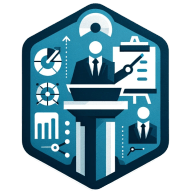Corporate education is a dynamic field, constantly evolving to meet the demands of the modern workplace. This blog post will delve into the latest trends shaping this sector, from the rise of digital learning platforms to the emphasis on soft skills training. We will explore how these trends are transforming the way companies educate their employees and prepare them for the challenges of the 21st-century business landscape.
The Digital Revolution in Corporate Education
The digital revolution has not spared the realm of corporate education. Companies are increasingly leveraging technology to deliver training and development programs to their employees. This shift towards digital learning platforms is one of the most significant trends in corporate education today.
Online learning platforms offer several advantages over traditional classroom-based training. They provide flexibility, allowing employees to learn at their own pace and on their own time. This is particularly beneficial for companies with a geographically dispersed workforce.
Moreover, digital learning platforms can be customized to meet the specific needs of each employee. They can provide personalized learning paths based on an individual's role, skills, and learning style. This level of personalization is not possible with traditional training methods.
Another advantage of digital learning platforms is their ability to provide real-time feedback. Employees can immediately see how they are performing and where they need to improve. This instant feedback can significantly enhance the learning experience and lead to better outcomes.
The Rise of Soft Skills Training
Another trend that is gaining traction in corporate education is the emphasis on soft skills training. Companies are recognizing that technical skills alone are not enough to succeed in today's business environment. Employees also need to develop strong communication, leadership, and problem-solving skills.
Soft skills are critical for fostering a collaborative and innovative workplace culture. They can enhance teamwork, boost productivity, and improve customer service. Moreover, as automation and artificial intelligence continue to transform the workplace, soft skills are becoming even more important. They are the skills that cannot be automated and will always be in demand.
Training programs focused on soft skills are becoming a key component of corporate education strategies. Companies are investing in workshops, coaching sessions, and online courses to help their employees develop these crucial skills.
The Shift Towards Continuous Learning
The concept of continuous learning is another trend shaping the corporate education landscape. In the past, training was often seen as a one-time event, something that employees did when they first joined a company or when they needed to learn a new skill. However, this approach is no longer sufficient in today's fast-paced business environment.
Continuous learning is about fostering a culture of ongoing development and growth. It's about encouraging employees to continually update their skills and knowledge, to stay relevant and competitive. This approach recognizes that learning is not a destination, but a journey.
Companies are promoting continuous learning in various ways. They are offering a wide range of learning resources, from online courses to webinars to podcasts. They are also providing incentives for learning, such as recognition and rewards for employees who complete certain training programs.
The Integration of Learning and Work
The integration of learning and work is another trend that is reshaping corporate education. Companies are realizing that learning should not be a separate activity, something that employees do outside of their regular work hours. Instead, learning should be integrated into the flow of work.
This approach involves creating opportunities for learning within the context of daily work activities. For example, employees might learn a new skill while working on a project, or they might gain new knowledge from a colleague during a team meeting.
Integrating learning and work can make learning more relevant and meaningful. It can also make it more efficient, as employees can immediately apply what they have learned. This trend is being facilitated by technology, which can provide just-in-time learning resources that are accessible at the point of need.
The Focus on Employee Experience
The focus on employee experience is another trend influencing corporate education. Companies are recognizing that the way employees experience learning can have a significant impact on their engagement, productivity, and retention.
This trend is about creating a positive and engaging learning experience for employees. It's about making learning fun, interactive, and relevant. It's also about providing support and guidance throughout the learning journey.
Companies are using various strategies to enhance the employee learning experience. They are leveraging technology to create interactive and immersive learning environments. They are also using gamification techniques to make learning more engaging and fun.
The Use of Data and Analytics
The use of data and analytics is another trend that is transforming corporate education. Companies are using data to understand how employees are learning, what they are learning, and how effective their learning is.
Data can provide valuable insights that can help companies improve their training programs. For example, data can reveal which learning methods are most effective, which topics are most relevant, and which employees are most engaged in learning.
Companies are using various tools and technologies to collect and analyze learning data. These include learning management systems, learning analytics tools, and artificial intelligence.
The Future of Corporate Education: Embracing Change
The world of corporate education is undergoing a profound transformation. The rise of digital learning platforms, the emphasis on soft skills training, the shift towards continuous learning, the integration of learning and work, the focus on employee experience, and the use of data and analytics are all trends that are reshaping this field. Companies that embrace these trends and adapt their corporate education strategies accordingly will be well-positioned to thrive in the 21st-century business landscape.

